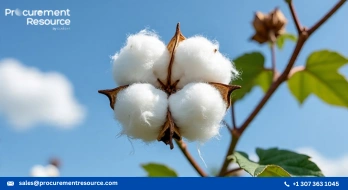China imposes 75.8% anti-dumping duties on Canadian canola imports

China's 75.8% anti-dumping duties on Canadian canola imports, which took effect on August 14, 2025, have significantly intensified trade tensions between the two nations. The move represents Beijing's strongest response yet to Canada's imposition of tariffs on Chinese electric vehicles a year earlier in August 2024. The Chinese Ministry of Commerce implemented the measures following a comprehensive investigation that allegedly uncovered substantial government subsidies benefiting Canada's canola industry.
Canadian authorities have firmly rejected the dumping allegations, expressing profound disappointment with China's decision while reaffirming their openness to diplomatic discussions. Trade Minister Maninder Sidhu and Agriculture Minister Heath MacDonald jointly emphasized Canada's commitment to protecting its canola industry's market access, even as the country now finds itself navigating trade restrictions from both China and the United States simultaneously.
The tariffs have created immediate market disruptions, with Canadian canola futures experiencing a sharp decline of approximately USD 30 per metric ton following the August 14 implementation. Industry analysts note the punitive duties have effectively priced Canadian canola out of the Chinese market, jeopardizing what had been a USD 3.6 billion trade relationship in 2024. The Canola Council of Canada has characterized the situation as particularly damaging, occurring just as Canadian farmers prepare for their annual harvest.
Read More About Canola Oil Production Cost Reports - Request Free Sample Copy in PDF
Market observers interpret China's aggressive tariff imposition as a strategic message about its willingness to endure short-term supply chain adjustments. While Australia has emerged as a potential alternative supplier following the resolution of its own trade restrictions with China, industry experts question whether global markets can fully compensate for the loss of Canadian canola volumes. The duties have compounded existing market pressures, including anticipated larger Canadian harvests due to favorable growing conditions.
The August 14 measures form part of a broader pattern of trade actions, with China simultaneously initiating anti-dumping investigations into Canadian pea starch and imposing provisional duties on halogenated butyl rubber imports. These developments mark a notable departure from the more conciliatory tone established during high-level discussions between Chinese and Canadian leaders in June 2025, signaling a hardening of Beijing's trade policy stance.
As the Canadian agricultural sector assesses the long-term implications, industry representatives maintain that China will eventually need to resume Canadian canola imports to meet its domestic demand. However, with the duties now in effect and no immediate resolution in sight, market participants are bracing for continued volatility in global canola trade flows. The situation underscores the growing politicization of agricultural trade and the complex challenges facing export-dependent economies in an era of increasing trade protectionism.



